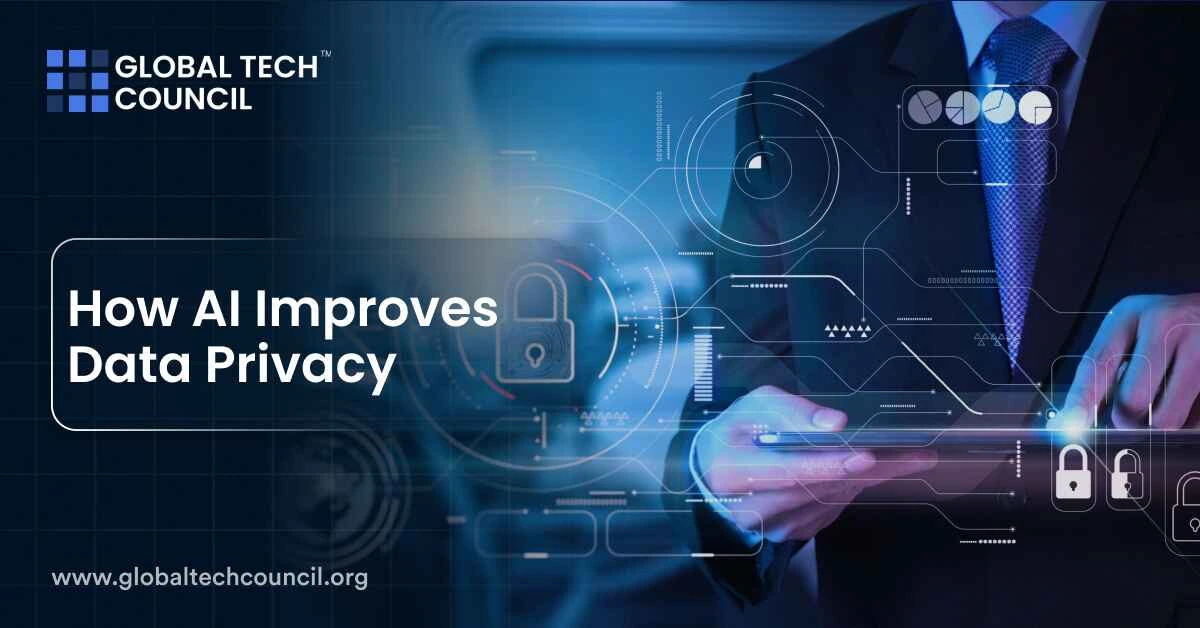
Artificial intelligence (AI) is bringing major changes to how personal data is protected. With its growing presence in everyday life, keeping personal information safe is more important than ever.
How AI Helps Protect Privacy
AI has tools that can examine large amounts of data, pick out patterns, and notice unusual activity—all while keeping information secure. By handling data smartly, AI can help businesses follow privacy rules and keep sensitive information out of harm’s way.
The Concept of Differential Privacy
Differential privacy allows organizations to learn from data without exposing any personal details. By adding small changes (called noise) to the data, AI can analyze trends while keeping individual identities hidden. A great example is Apple’s iOS system, which uses this approach to gather user data for service improvements without putting personal privacy at risk.
In finance, some companies now use differential privacy to understand transaction patterns without revealing any customer information. This balance between privacy and insight builds trust among users.
To learn more about AI and how it impacts data privacy, consider getting certified with renowned programs like the CAIE Certified Artificial Intelligence (AI) Expert® program.
Decentralized Training: Federated Learning
Federated learning allows AI systems to learn from data on different devices without collecting it in one place. This keeps the information on local devices, lowering the risk of leaks. For instance, Google uses this technology in Gboard, its mobile keyboard, to improve typing suggestions while keeping user data on their devices.
This idea has also made its way into healthcare. Hospitals can use federated learning to train diagnostic AI tools while keeping patient data secure and on-site. This keeps sensitive medical records private, even as they contribute to AI advancements.
New Privacy Solutions Using AI
Organizations worldwide are using AI to make privacy stronger. Here are some notable examples:
Apple’s Local Data Processing
Apple introduced “Private Cloud Compute” (PCC) as part of its operating system updates. PCC processes most data directly on devices. Even when the cloud is used, the system ensures that no data is stored where unauthorized access is possible. This keeps users’ information safer and reduces risks of breaches.
Proton’s Focus on Encryption
Proton, a company known for privacy-first tools, recently launched new services like Sentinel and Scribe. Sentinel adds extra layers of account protection, while Scribe helps users write emails using AI, all without exposing any personal content. Proton’s encrypted services continue to attract millions of privacy-conscious users globally.
Microsoft’s Privacy-First Assistant
Microsoft’s AI assistant, Copilot Vision, offers tools for interacting with web content while keeping privacy intact. Users must enable its features, ensuring the AI only accesses what’s explicitly allowed. Microsoft guarantees that no information is saved or used to train models without user consent.
The Certified Artificial Intelligence (AI) Developer® program will equip you with the necessary skills and knowledge to build AI systems that adhere to data privacy rules.
How Governments Are Responding
As AI technology advances, governments are stepping in to create rules that ensure its safe and responsible use.
The EU’s New AI Rules
The European Union introduced an AI law that promotes transparency and fairness. This regulation ensures AI tools are built to respect privacy laws, making them safer for public use.
U.S. Privacy Commitments
In the United States, the government has worked with tech companies to create voluntary privacy standards. These measures aim to reduce risks and promote trust in AI systems.
Overcoming Challenges in AI and Privacy
Although AI shows great promise, challenges still exist. For instance, biases in algorithms or difficulties in keeping large datasets secure can create problems. Researchers and developers need to focus on innovation and ethical practices to address these concerns.
Some future AI technologies aim to make data exposure during training even smaller. These advancements could bring even stronger privacy tools to industries that handle sensitive information.
Final Thoughts
AI is making big strides in protecting personal information. From decentralized training to privacy-first features and new government regulations, it’s clear that AI is reshaping how privacy is handled. As technology continues to evolve, the focus on keeping personal data safe will only grow stronger. This ensures that progress in AI happens responsibly while maintaining trust and security.